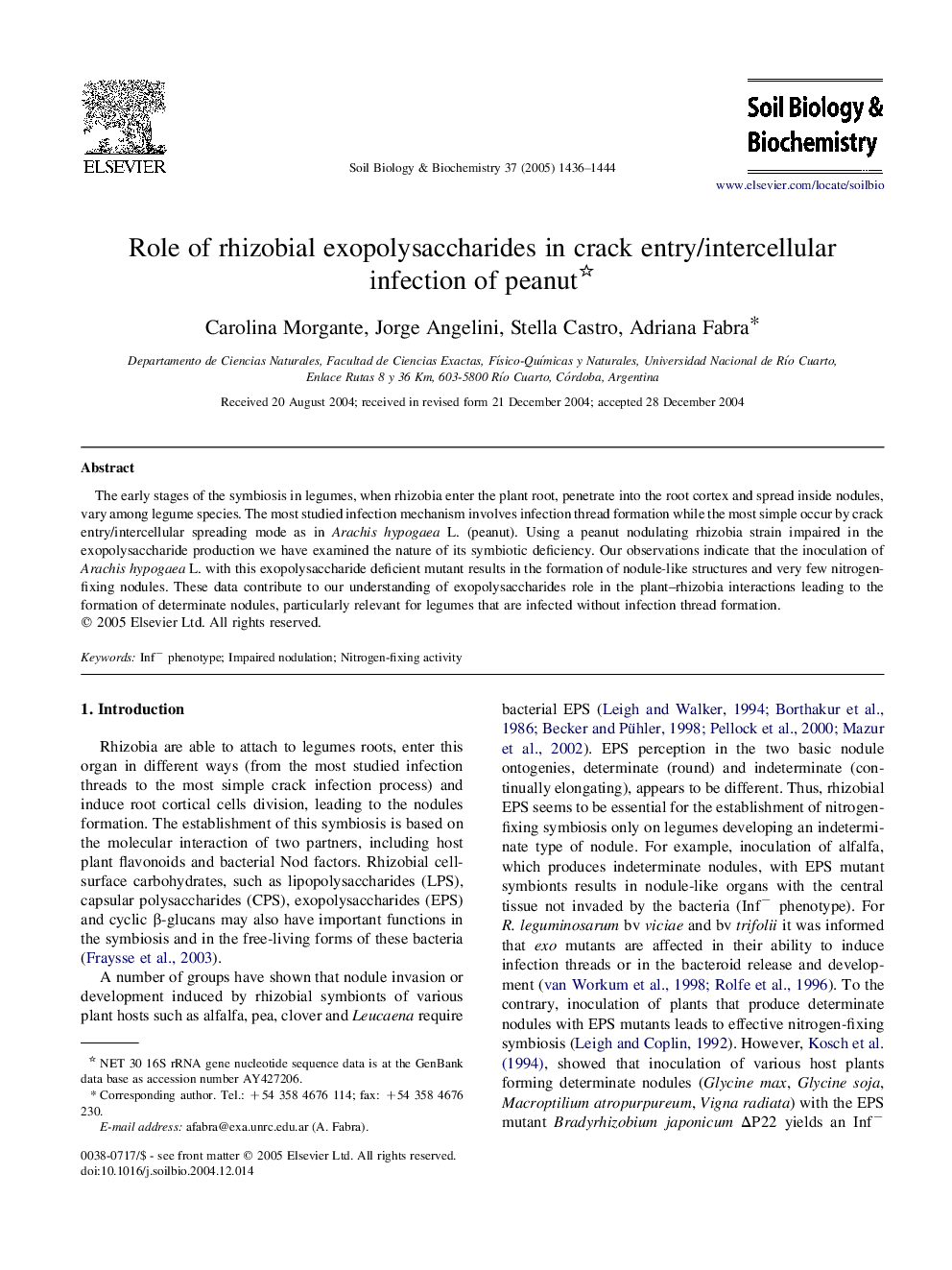| Article ID | Journal | Published Year | Pages | File Type |
|---|---|---|---|---|
| 10846213 | Soil Biology and Biochemistry | 2005 | 9 Pages |
Abstract
The early stages of the symbiosis in legumes, when rhizobia enter the plant root, penetrate into the root cortex and spread inside nodules, vary among legume species. The most studied infection mechanism involves infection thread formation while the most simple occur by crack entry/intercellular spreading mode as in Arachis hypogaea L. (peanut). Using a peanut nodulating rhizobia strain impaired in the exopolysaccharide production we have examined the nature of its symbiotic deficiency. Our observations indicate that the inoculation of Arachis hypogaea L. with this exopolysaccharide deficient mutant results in the formation of nodule-like structures and very few nitrogen-fixing nodules. These data contribute to our understanding of exopolysaccharides role in the plant-rhizobia interactions leading to the formation of determinate nodules, particularly relevant for legumes that are infected without infection thread formation.
Related Topics
Life Sciences
Agricultural and Biological Sciences
Soil Science
Authors
Carolina Morgante, Jorge Angelini, Stella Castro, Adriana Fabra,
